Cargando...
Recursos educativos
-
Nivel educativo
-
Competencias
-
Tipología
-
Idioma
-
Tipo de medio
-
Tipo de actividad
-
Destinatarios
-
Tipo de audiencia
-
Creador
Lo más buscado
- Juegos educación física
- Proyectos escolares de quimica
- Repaso de sintaxis
- Siglo XX
- Rios de América
- Letras L
- Ramón Llull
- La pirámide alimenticia
- Aprender a montar en bici
- Aula interactiva la rueda de los alimentos
- Relieve de Asia
- Múltiplos de 6
- Figuras literarias
- Materiales para experimentos
- Simetría axial
-
Introduction - The Animal Kingdom (I). Invertebrates
EduBook Organización
- 1 lo usan
- 4793 visitas
Today our planet is home to a great variety of organisms. This is the result of an evolutionary process that began some 3.5 billion years ago. Invertebrates are a very diverse group of animals that do…
-
End-of-unit activities - The Animal Kingdom (I). Invertebrates
EduBook Organización
- 4580 visitas
Today our planet is home to a great variety of organisms. This is the result of an evolutionary process that began some 3.5 billion years ago. Invertebrates are a very diverse group of animals that do…
-
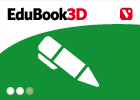
Analyse. Immigration in Spain in 2010
EduBook Organización
- 4381 visitas
Look at the table and do the activities: What countries do immigrants in Spain come from? And from which continents? Where did most of the immigrants come from in 2010? Can you explain why? Look at the…
-
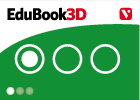
Choose. The empire of the Tsars
EduBook Organización
- 4257 visitas
Choose the correct answer: How much power did the Tsar have at the beginning of the 20th century? What was the main economic activity in Tsarist Russia? Which political group in Russia represented the…
-
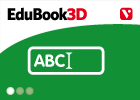
Initial evaluation 02 - Animals
EduBook Organización
- 4194 visitas
Write true (T) or false (F) for each sentence. Invertebrates have bones. ➝ Sea anemones and jellyfish are cnidarians. ➝ Sponges live in the water. ➝ Sea urchins and worms have bilateral symmetry.…
-
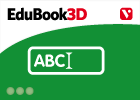
Final self-evaluation 10.01 - The Baroque Age
EduBook Organización
- 4104 visitas
Complete the text with the missing words: movement – bourgeoisie – demographic – absolute – science – nation – agricultural – maritime During the 17th century in Europe, there were…
-
The cell - Introduction
EduBook Organización
- 4091 visitas
1. From biomolecules to organisms The molecules that make up living things, biomolecules, join together to form large molecules called macromolecules. The next level of complexity is the cell, which is…
-
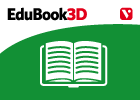
Enlightened reformism in Spain
EduBook Organización
- 1 lo usan
- 3538 visitas
7.1. The Spanish Enlightenment In Spain, like the rest of Europe at the time, there was a group of Enlightenment thinkers concerned with education, science and progress. They were concerned about the…
-

Self-evaluation 7 - The Earth's relief
EduBook Organización
- 3614 visitas
Match each characteristic to a continent: A group of islands that make up part of this continent is known as Micronesia. A thick layer of ice completely covers this continent. The location of the…
-
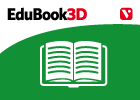
The Internet and the World Wide Web
EduBook Organización
- 3569 visitas
Computer networks Computers can work independently, like the computers in many homes, or they can be connected in a network. A network is a group of interconnected computers in which people share…
Te estamos redirigiendo a la ficha del libro...












